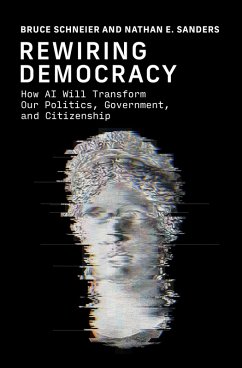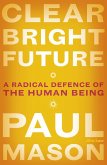From the New York Times-bestselling author of The Hacker's Mind and Data & Goliath, an informative and wide-ranging exploration of how AI will alter every facet of democracy, and how to harness the technology to distribute rather than concentrate power. AI will change democracy. The only question is how. AI's impact on democracy will go far beyond headline-grabbing political deepfakes and automated misinformation. Everywhere it will be used, it will create risks and opportunities to shake up long-standing power structures. In this highly readable and advisedly optimistic book, Rewiring the Republic, security technologist Bruce Schneier and data scientist Nathan Sanders cut through the AI hype and examine the myriad ways that AI could dramatically change every aspect of democracy- for both good and ill. The authors describe how the sophistication of AI will fulfill demands from lawmakers for more complex legislation, reducing deference to the executive and altering the balance of power between legislators and administrators. They show how the scalability of AI is enabling civil servants to enforce regulations on corporations used to skirting the rules, which will reshape private-sector behavior. They also explain how both lawyers and judges will leverage the speed of AI, upending how we think about law enforcement, litigation, and dispute resolution. Whether these outcomes enhance or degrade democracy depends on how we shape the development and use of AI technologies. Powerful players in private industry and public life are already using AI to increase their influence, and AIs built by corporations to drive shareholder value aren't designed to deliver the fairness and trust necessary to enhance democratic governance. But, steered in the right direction, the broad scope of an AI-augmented democracy would help citizens build consensus, express their voice, and organize against anti-democratic policies. Democracy is facing new challenges worldwide, and AI will be a part of that. It can inform, empower, and engage citizens. It can also disinform, disempower, and disengage them. The choice is up to us. Schneier and Sanders blaze the path forward, showing us how we can use it to make an AI-infused democracy stronger and more participatory.
Dieser Download kann aus rechtlichen Gründen nur mit Rechnungsadresse in A, B, BG, CY, CZ, D, DK, EW, E, FIN, F, GR, HR, H, IRL, I, LT, L, LR, M, NL, PL, P, R, S, SLO, SK ausgeliefert werden.









